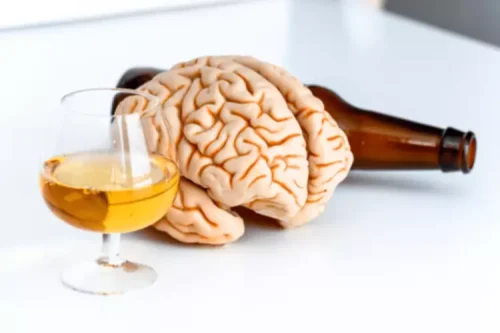Is Anyone Really a High-Functioning Alcoholic?

Symptoms of alcohol use disorder can range from mild to severe. Even mild symptoms can have negative effects in a person’s life, both personally and professionally. While there’s no specific blood test that can diagnose an alcohol use disorder, certain lab results can point to chronicalcohol abuse and possible alcohol addiction. That said, regular heavy drinking is an important warning sign for alcohol addiction, according to addiction experts at theNational Institute of Alcohol Abuse and Alcoholism. Heavy drinking in conjunction with other behaviors can also signala problem. As an addiction tends to get worse over time, it’s important to look for early warning signs.

What Is Alcoholism and How to Get Treatment
And it’s all still problem drinking, even if you think it’s “mild.” If AUD goes unrecognized and untreated, it’s linked to risks in many aspects of your health and life. Many people use the terms “alcohol abuse” and “alcoholism” interchangeably. However, alcoholism refers to alcohol addiction or dependence, where the individual has a physical or psychological compulsion to drink alcohol. Alcohol abuse refers to a pattern of behavior where a person drinks excessively in spite of the negative consequences. The relationship between mental health conditions and alcohol use disorder is complex.
Prevention of Alcohol Use Disorder
- Typically, a diagnosis of alcohol use disorder doesn’t require any other type of diagnostic test.
- Daily drinking can have serious consequences for a person’s health, both in the short- and long-term.
- Seeking professional help early can prevent a return to drinking.
- When your alcohol use, including being sick from drinking, often prevents you from keeping up with responsibilities at home, work, or school, it’s a problem.
Typically, a diagnosis of alcohol use disorder doesn’t require any other type of diagnostic test. There’s a chance your doctor may order blood work to check your liver function if you show signs or symptoms of liver signs of alcoholism disease. Alcoholism has been known by a variety of terms, including alcohol abuse and alcohol dependence. If you’ve had two or three of those symptoms in the past year, that’s a mild alcohol use disorder.
Alcohol Use Disorder
Alcoholics often have defective red blood cells that die prematurely, which can cause a lower-than-normal red blood cellcount. Gastrointestinal bleeding, a symptom some alcoholics experience, can also cause anemia, as can iron deficiency. Tolerance symptoms include a need to drink more than you once did to https://ecosoberhouse.com/ achieve the desired level of intoxication. People experiencingthis phenomenon might even switch up their drink of choice — moving from beer or wine to hard liquor, for example, toaccommodate their need for more alcohol. When alcoholism is severe, an individual may develop a physical dependence on the drug.

Here, we briefly share the basics about AUD, from risk to diagnosis to recovery. This article introduces a number of AUD topics that link to other Core articles for more detail. We’re not talking about just the time with a glass (or can, or bottle) in your hand.


- Many people with AUD do recover, but setbacks are common among people in treatment.
- Of the five subtypes, they rate highest for other psychiatric disorders and abuse of other substances.
- Drinking heavily over long periods of time may lead to changes in how the brain functions, from memory slips to more debilitating conditions.
